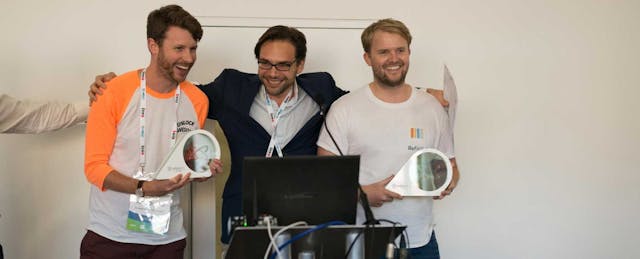Europe’s signature edtech event, the EdTech Europe conference, took place this June at King’s Place in London. The event has grown by more than 120% from last year, with 675 people from 31 countries in attendance, including Sal Khan of the Khan Academy, Liz Sproat, Head of Education EMEA for Google, Dr. Stacey Clawson, Senior Program Officer for the Bill and Melinda Gates foundation, Karine Allouche Salanon, CEO of Pearson English Business Solutions, Venture Capitalist and CEO of SHO-Zemi Innnovation Ventures Yosho Okamoto.
12x Growth Potential for Edtech Investors
In his opening presentation speech, conference founder Benjamin Vedrenne Cloquet described that only 3% of spending in education is on digital, vs. around 35% in most other content-based industries, pointing to a pretty attractive 12x growth potential for those that are prepared to invest. Further, edtech is less than 5% of the total $4 trillion global education market, signalling clear potential for growth. This is particularly true in Europe.
“The EdTech Europe event shows why people build edtech companies in Europe - it gathers together industry leaders, entrepreneurs, and investors, for whom a global mindset and a desire to collaborate internationally is simply the default,” explained Lucy Stonehill, CEO of BridgeU.
Especially in Europe, it is no secret that governments are becoming ever more pressured to push for digitalization in schools in order to supply a competitive workforce with adequately skilled leaders and employees.
Europe’s Push for Edtech
Take Germany, the region’s strongest economic player. Germany’s vice chancellor and economic minister Sigmar Gabriel has taken the digital transformation directly under his wing as a top priority. Currently, he hardly misses a union event concerning the “4th industrial revolution”, as Germany calls its push to digitalization, where he repeatedly stresses that education is a key prerequisite for the success of the 4th industrial revolution. As a result of the strong push towards digitalization and according education, both governing parties have been organizing events to strategize the implementation of edtech solutions and the EU has the Agenda for New Skills and Jobs as a key part of its Europe 2020 strategy, supporting member states though funding in those areas.
While we don’t know how quickly the EU and its member states will execute a broad edtech initiative, what we can expect is that large funding pots will be made available. The potential for disruption of the continent’s education system is huge.
EdTech Europe’s "EdTech 20"
The EdTech 20 recognizes education technology companies which have shown the most significant innovation and growth over the last year, and whose businesses are primarily based within Europe. Inclusion in EdTech 20 is determined by a global panel of judges, who evaluate various factors including revenue growth, scale, innovation and market impact.
Ted Talks Meet the Global Edtech Community
The event’s organizer, Benjamin Vedrenne-Cloquet, Partner at IBIS Capital and EdTech Europe, wrapped up his thoughts for the event: “This year’s EdTech Europe conference had a feel of ‘Ted Talks’ meets the global EdTech Business Community.” The biggest surprise, he said, was the increased interest from institutional investors in opportunities in edtech on the back of the landmark LinkedIn and Lynda.com deal.
Top sessions included:
- Edtech Europe’s "Global Edtech All Stars,” a showcase of 50+ startups
- a Sal Khan live video interview by Sky news TV anchor Martin Stanford
- a 21st Century Skills lecture by Liz Sproat (Google Education)
- a CEO's talk on Digital Transformation (TES Global, Pearson and Sanoma)
Elon Musk and Edtech
A key part of the conference was the attendance of Matt Keller, Senior Director at XPRIZE, which is organizing competitions to help solve some of the world’s biggest problems. For example, in 2004, the Ansari XPRIZE helped ignite the commercial space industry, as entrepreneursincluding Richard Branson and Elon Musk attempted to outdo one another, bringing innovation and extra funding into the space exploration industry.
Now Elon Musk has provided funding for the $15 million Global Learning XPRIZE, a competition that challenges teams from around the world to develop scalable, open-source software to enable children in developing countries to teach themselves basic reading, writing and arithmetic within the 18 month competition field-testing period. There are 198 teams from 40 countries, including 12 from the UK and 26 from Africa, who have signed up to take part in the challenge. The finalists will be awarded $1 million each in funding, before the winner is selected at the end of the 4 year competition. I am excited and hopeful that the Global Learning programme could have a similar impact on education as the Ansari XPRIZE or Oil Cleanup XPRIZE had on their respective fields.
The EdTech Europe event certainly shows that there is enough talent and innovative ideas to help the region train and qualify a digital workforce. While the need for digitalization in Europe’s classrooms is severe, the biggest impact of online education - and the most lucrative segment of the edtech market - may be the world outside of the classroom.


